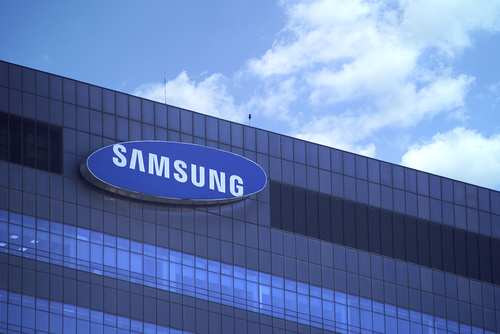
Samsung’s South Korean union members have voted overwhelmingly in favour of strike action following a breakdown in negotiations over pay increases.
The largest proportion of union members work in Samsung’s semiconductor and smartphone facilities. A halting of operations would have significant repercussions, both for the company itself and the global semiconductor supply chain.
After failure to agree pay increases, 74% of the company’s 27,000 union members have voted in favour of strike action. The legal requirement states that over half of the members must support the collective action.
Last week the company said it expects profits in Q1 2024 to be a whopping 931% higher than the same period of the previous year, as chip prices recover from a post-pandemic slump and demand for artificial intelligence products increases exponentially.

Negotiations between the workforce and management broke down in February following nine rounds of talks. If the strike goes ahead, it would be the first the company has faced in its 55-year history. Next week, the unions plan to stage a rally of around 1000 members at Samsung Electronic’s semiconductor office in Hawseong, south of Seoul.
Failure to find a solution would cause a ripple effect felt by the sector at large. Samsung is a dominant player in the semiconductor industry – in 2023 its chip revenue stood at $40.9bn and took the second largest slice of overall market share after Intel.
“Samsung’s devices are bought by customers across several applications/industries, including consumer electronics, automotive, industrial, communications, and data processing electronics,” Dr. Gaurav Gupta, a VP analyst in the Emerging Trends and Technologies team at Gartner, told Tech Monitor. “Any disruptions in Samsung electronics’ operations could have a major negative ripple impact across the entire semiconductor/electronics value chain, potentially creating undersupply and shortages that could lead to price hikes and product delays.”
Samsung’s domestic strife comes at a time when the company is poised to significantly scale up its semiconductor manufacturing capacity overseas. Bloomberg reports that the company will be announcing a $44 billion investment in US chipmaking as early as next week, including $6 billion in US government grants. The facility will be in Taylor, Texas. Samsung already operates a factory in Austin.
Samsung workers vote to strike for better pay terms
Up until 2019, Samsung had banned the formation of unions, and even saw their chairman and over 20 other executives charged with sabotaging union activities. Following international campaigning from labour organisations, the company came to recognise it was out of touch with Korean work practices, which led to changes in policy.
“Samsung has not been able to adapt to changing times,” Samsung Electronics chairman Lee Jae-yong said when he announced the shift in May 2020. He pledged to guarantee workers’ rights and “establish a healthy labor-management culture.”
Samsung’s five unions continue strike efforts
Samsung Electronics said last month that it has agreed with its workforce to an average 5.1% pay rise for the year. The largest union among the five, the National Samsung Electronics Union, claimed it would only accept this offer instead of its desired 6.5% on the grounds that the company also offer bigger bonuses. The current annual salary of an average Samsung employee is around the equivalent of $88,000. The unions also aimed to negotiate one additional day of paid leave with larger bonuses on top of the 6.5% pay increase.
“The company always leaves the door open for dialogue,” Samsung said in a statement. “We will make efforts not to cause trouble in normal business activities, communicating continuously to narrow the gap between the unions and the company.”






